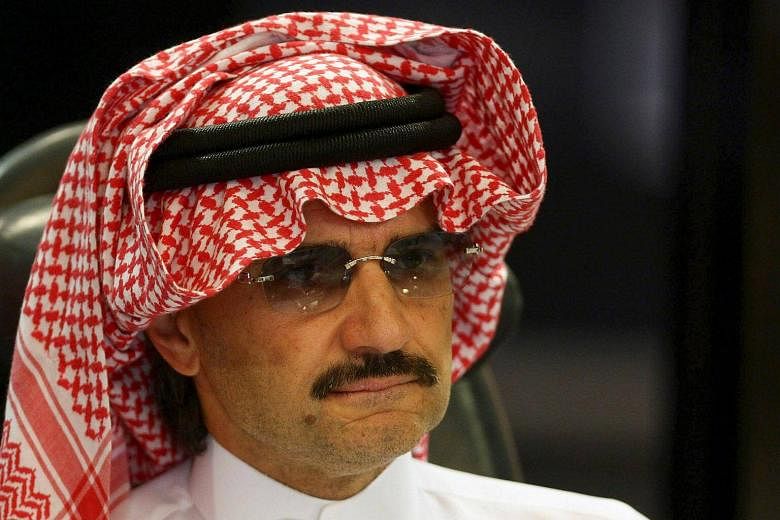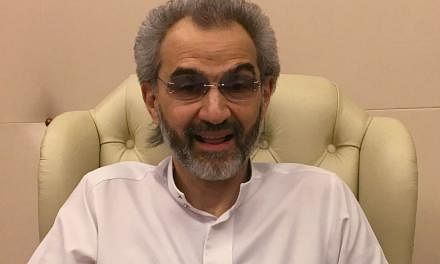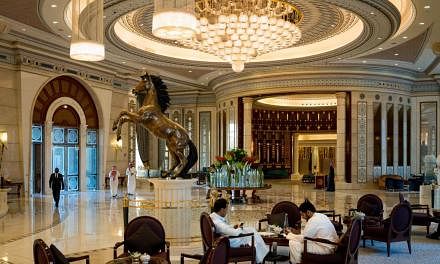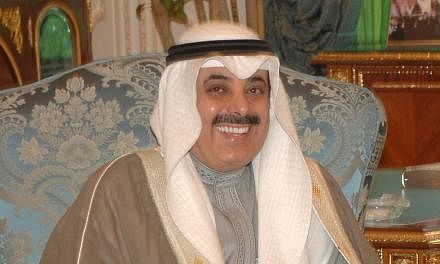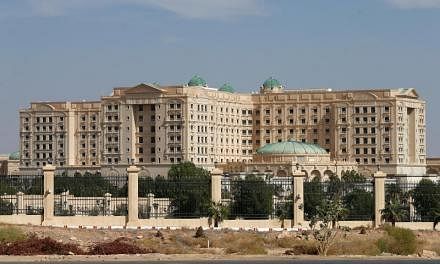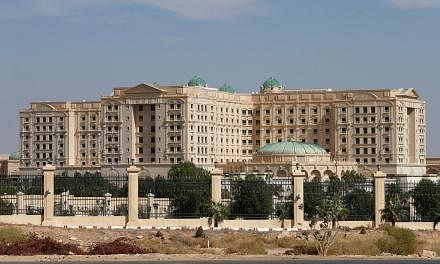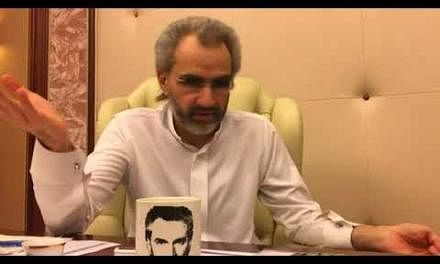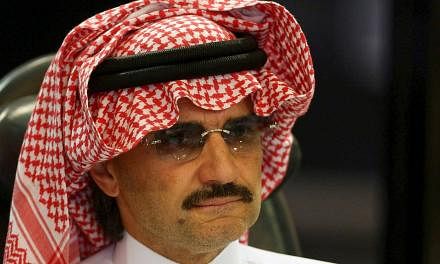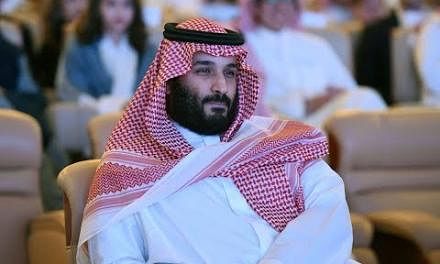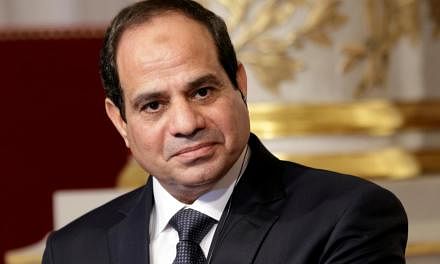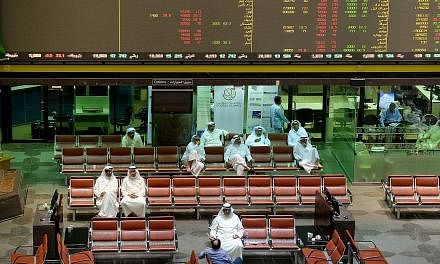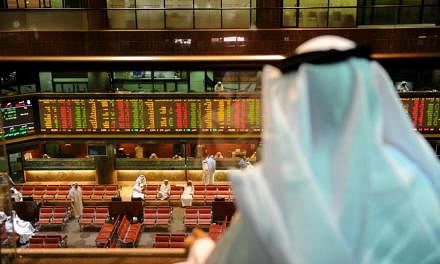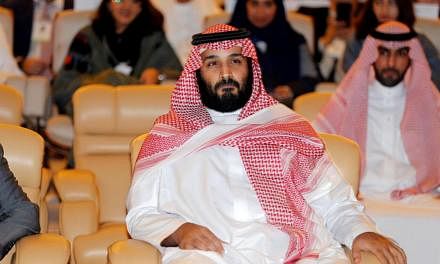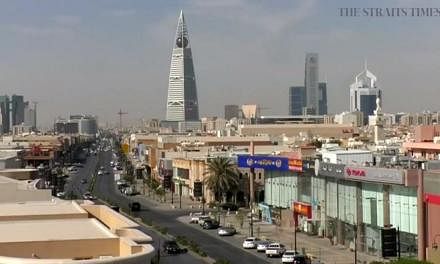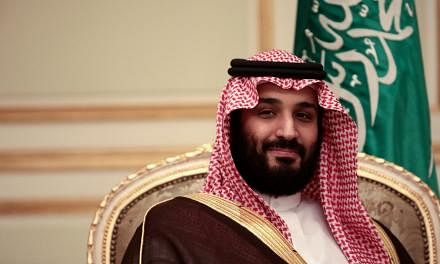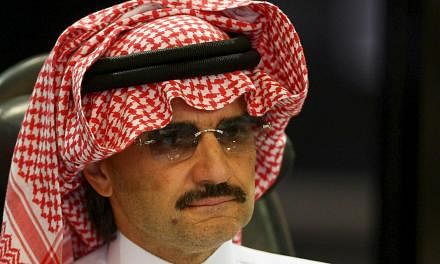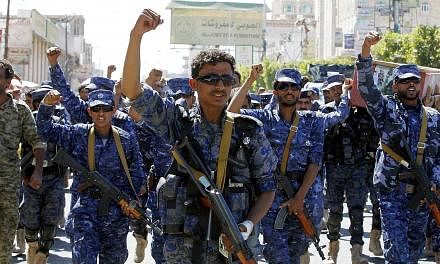RIYADH (WASHINGTON POST) - Even if you didn't know much about Saudi Prince Alwaleed bin Talal before his arrest on Saturday - in what was either an anti-corruption purge or a political crackdown - you're almost certainly acquainted with his money.
The biography on Alwaleed's personal website consists of a single sentence about his background (born 1955; grandson of the first king of Saudi Arabia), followed by a dense page crammed with details of his wealth and power: Holdings in Twitter, Lyft, Euro Disney and Twentieth Century Fox; luxury hotels across the world; a tower under construction in Saudi Arabia that will soon be the world's tallest building. Or his opulent palace, where Business Insider once reported the prince kept "a group of dancing, laughing, joking dwarfs" in his entourage, occasionally tossing them around as sport like human shot putts.
That last part isn't in the official biography. And it would be a shame if all you knew about Alwaleed was his wealth, because the personality behind those billions of dollars sounds no less extraordinary.
It's true that Alwaleed descends from King Abdulaziz al-Saud, the founder of Saudi Arabia whose family has controlled it ever since. But the website biography doesn't mention what Vanity Fair will tell you: that Alwaleed's father rebelled against the repressive monarchy in the 1960s and forever after damaged his line's chances of inheriting the throne.
Though that hasn't stopped Alwaleed from hinting that he might one day sit on it.
Vanity Fair's profile also retells - with some scepticism - the official story of how Alwaleed amassed his immense fortune.
It reads like a fairy tale.
The prince was about 30, having returned from Menlo College in California with a business degree in 1985. "Alwaleed claims his father gave him US$30,000 (S$40,944). Within a year, he had lost the money. He went back to his father, who gave him US$300,000. This time, it took him three years to lose it." Third time was the charm. Alwaleed's father gave him the deed to a house instead of cash, and told him "work for yourself". So he took a loan out on the deed, and with some shrewd investments (and his royal stipend, and the proceeds from hawking a US$200,000 heirloom), the prince learned to become a self-made man.
Others have speculated that his fortune owes more to the royal family's control of Saudi Arabia's oil, Vanity Fair wrote - or even that Alwaleed is "a frontman for the vast wealth of the Saudi royal family". In any event, the prince surged to the top of the billionaires list in early 1990s, not for any enterprise inside his family's kingdom, but by investing in a then-struggling US bank, now known as Citicorp.
From that point on, Alwaleed was a prince without borders. He worked with Stephen Bannon in the late 1990s. He sold a yacht to Donald Trump. At 62, The Associated Press reported, he's now one of the major shareholders in Apple, News Corporation and Twitter.
But we're getting sidetracked by dollars signs again. In our defence, they suffuse almost every anecdote about the prince's personality, and his hard-to-pin-down politics.
Alwaleed donated US$10 million to help New York after the terrorist attacks on Sep 11, 2001, Business Insider reported, for example. But Mayor Rudolph Giuliani turned the money down after the prince issued a news release criticising the US position on the Israel-Palestine conflict.
He's always been a press-happy prince. (Or occasionally press-cranky, as when Alwaleed sued Forbes for defamation, claiming the magazine had underestimated his wealth at a mere US$20 billion.) Seated in a recliner in shaded glasses at night, Business Insider reported, Alwaleed held forth to CNBC on the banking crisis in 2008. The same year, according to Forbes, he put on a ceremonial Saudi robe and took his personal Boeing 747 to the city of Jeddah. There he pitched his uncle, King Abdullah, on his plan to built a skyscraper more than a kilometre tall. "It will be the epicentre of Jiddah," the prince told Forbes. "It will be a magnet." The tower is slated to open in 2019. About midway through its construction, Business Insider ran an expose on Alwaleed's lifestyle at his headquarters in the capital of Riyadh. "Almost every source we spoke to, including Alwaleed's official spokesperson, confirmed that, like a medieval monarch, Alwaleed keeps in his entourage a group of dancing, laughing, joking dwarfs," the outlet reported in 2012. "One source called them 'jesters'. "
Not only did the prince hold occasional "midget-tossing" contests with these people, Business Insider wrote, but once invited his "jesters" to a business meeting, where he taught them the words "Boeing" and "Airbus", and had them decide which type of plane he should add to his personal fleet.
In the face of bizarre accusations like this, Alwaleed has made great demonstrations of his concern for human rights - especially among the poor and women. "Can you believe this? It's horrible," he told Forbes while handing out cash-stuffed envelopes in a Riyadh slum. The same article noted that women who work for Alwaleed's offices are discouraged from wearing the veils they're forced to wear in public.
The prince wrote an op-ed for the New York Times during the "Arab Spring" revolutions, condemning autocratic Arab nations led by those who "serve special and self-serving interests," and embracing his father's criticism of Saudi Arabia's autocracy.
And two years ago, following in the footsteps of Western billionaires like Bill Gates, Alwaleed promised to give away his entire US$30-some billion fortune in the indefinite future - "to build a more peaceful, equitable and sustainable world," he told reporters.
And the prince was among many global leaders to condemn Donald Trump early in his run for president, and attempt reconciliation after the election.
As The Washington Post previously wrote, some have suggested that Alwaleed is essentially running a PR campaign for his western business holdings.
Others wonder if he has designs on the Saudi throne. That's one theory for why Saudia Arabia's crown prince - Alwaleed's cousin - had him and 10 other princes arrested on Saturday to face a "royal anti-corruption" committee, amid rumours that the king is preparing to step down.
Power in Saudi Arabia has long passed between the sons of the founding king, Forbes wrote in 2009. But the line of succession has become complicated as that generation nears the end of its life span.
Could the globe-trotting, billionaire son of a dissident one day take the throne? "Sure," Alwaleed told Forbes. "The chain of command of people who could become king in this country is between the sons and the grandsons of King Abdulaziz. I am among them." Others doubted his chances. "Alwaleed is the Donald Trump of Saudi Arabia," an expert on the Saudi royal house told Forbes that year."He may be a symbol of success for some Saudis, but many others view him as being way too gaudy." But that was many years ago. Donald Trump is president of the United States now, and who knows what's in store for Alwaleed?
